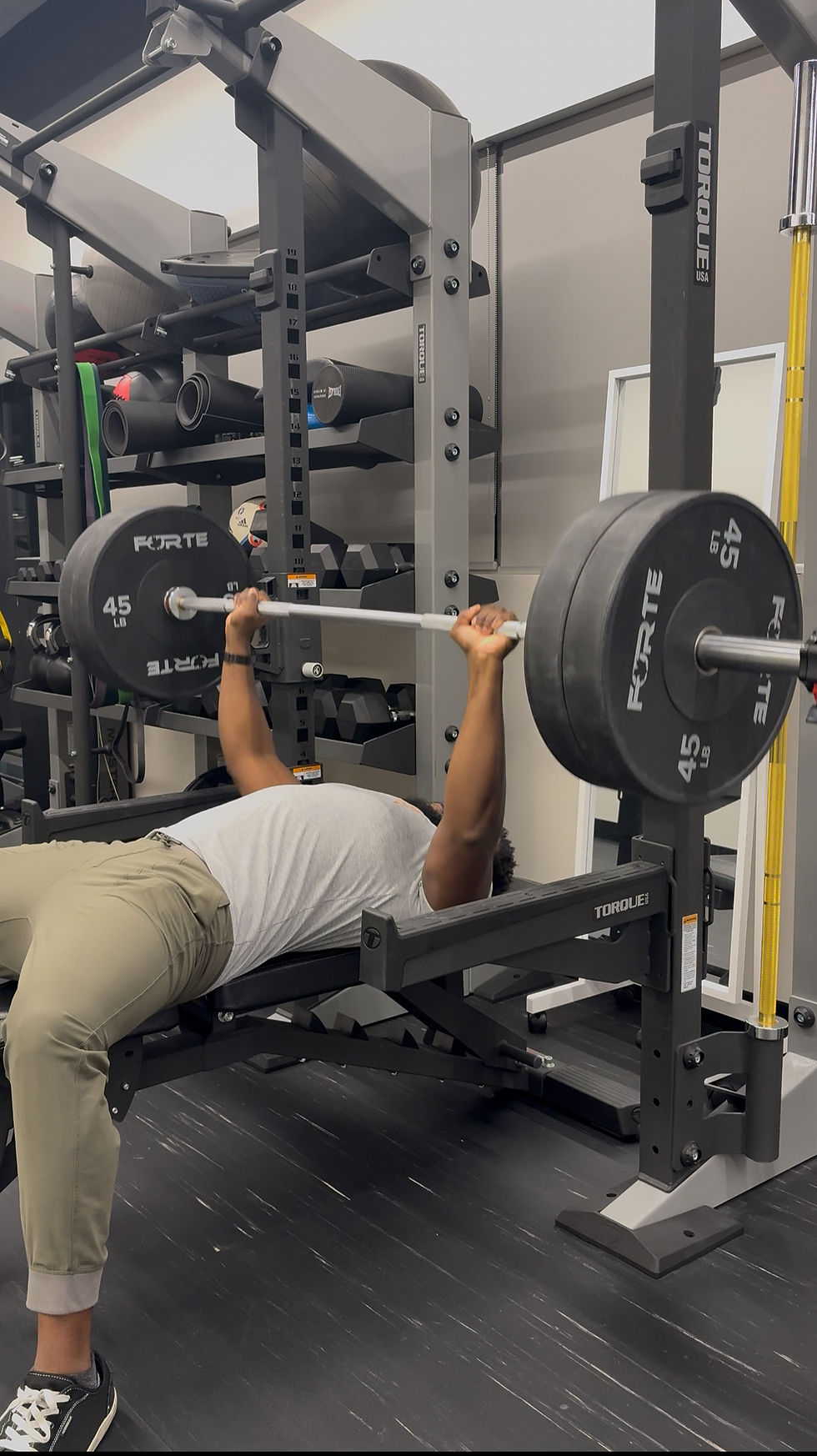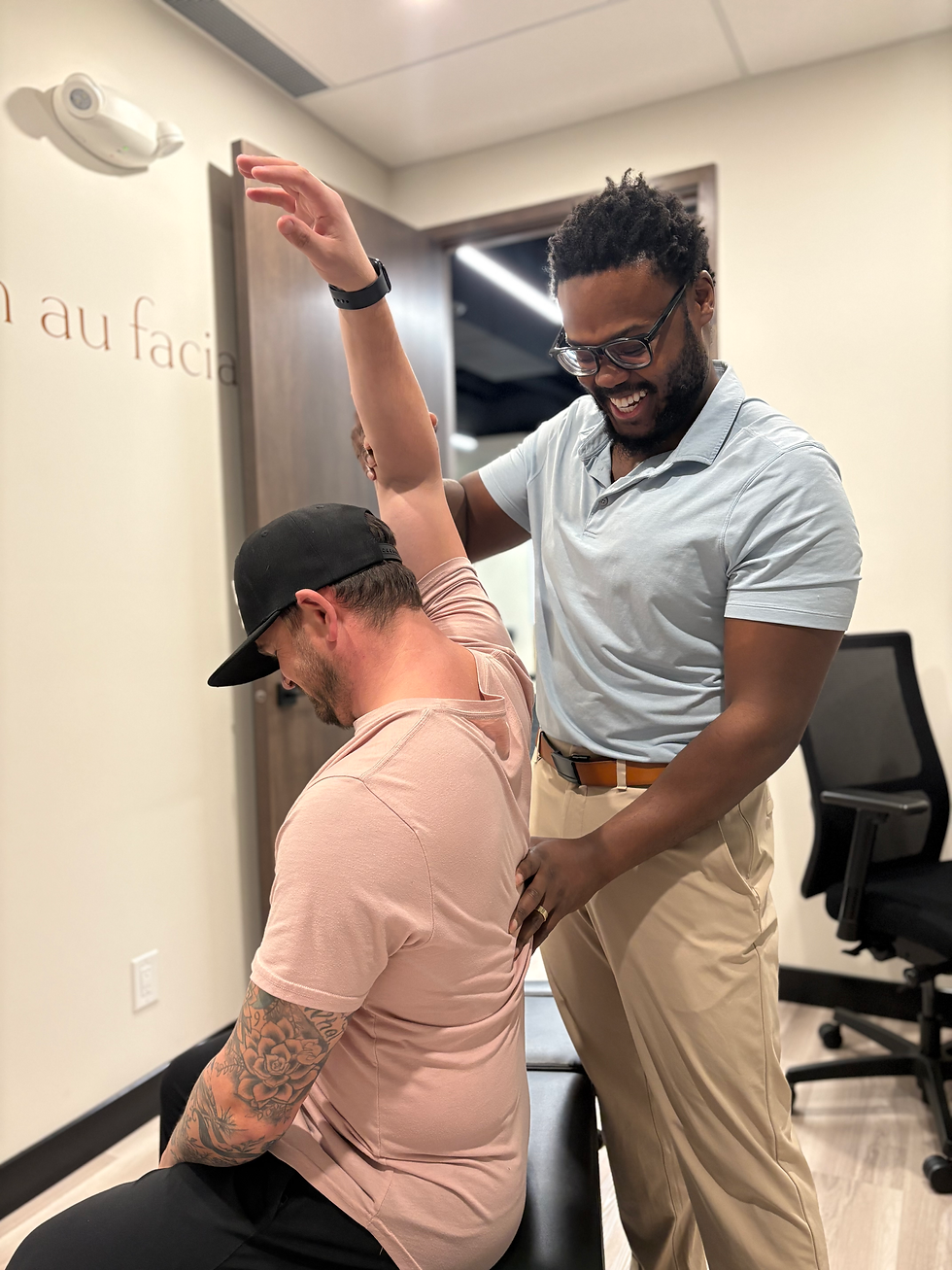STRESS & THE BODY | Why Mental Health Symptoms Often Show Up as Physical Pain
- Dr. Joshua Konu
- Sep 29, 2025
- 3 min read

When people think of stress, they often picture racing thoughts, worry, or sleepless nights. But stress does not just live in the mind. It shows up in the body too, sometimes in surprising ways.
Over my 15 years working in the mental health field and through my clinical practice as a chiropractor, I have seen countless patients who came in for “physical pain” that was actually fueled by stress. The science is clear: the mind and body are deeply connected.
How Stress Shows Up in the Body
Muscle Tension and Pain Stress activates your nervous system, putting your body into “fight or flight” mode. Muscles tighten, often in the neck, shoulders, and lower back. Over time, this tension can lead to headaches, restricted movement, and even chronic pain.
Headaches and Migraines Stress can constrict blood vessels and trigger nerve sensitivity. Patients often describe tension headaches that feel like a band across the forehead or pain radiating from the neck into the skull.
Digestive Issues Your gut and brain are linked through the vagus nerve. Stress hormones can disrupt digestion, causing bloating, stomach cramps, or irritable bowel-like symptoms.
Sleep Disturbances High stress keeps cortisol levels elevated, which makes it harder to get deep, restorative sleep. Poor sleep then makes pain and stress worse, creating a vicious cycle.
Why This Happens
Think of stress as a full-body alarm system. It prepares you to fight or flee, but when it is chronically activated, that system starts wearing you down. Muscles stay tense, inflammation rises, and the nervous system becomes hypersensitive to pain.
Research supports this:
Chronic stress is linked to higher rates of musculoskeletal pain and tension headaches【1】.
Studies show that stress related gut issues are mediated by the brain gut axis【2】.
Poor sleep, often caused by stress, directly increases pain sensitivity【3】.
My Experience
With training in both psychology and chiropractic care, I approach stress related pain differently. I look beyond the immediate ache to uncover what your body might be signaling. I have worked with patients who thought they needed only adjustments or massage, but once we addressed the stress fueling their pain through psychology, breathing, and lifestyle changes, their recovery accelerated.
The Whole Body Approach
At Invicta Performance, we believe in integrative care:
Psychology helps address the root causes of stress and gives you tools to manage it.
Chiropractic and physiotherapy reduce muscle tension and restore movement.
Massage therapy releases stored tension.
Nutrition and lifestyle support help regulate stress hormones and energy.
Your mental health and physical health are two sides of the same coin. To truly heal, we have to treat both.
Final Thoughts
Stress will always be part of life, but it does not need to control your body. If you are noticing muscle tightness, recurring headaches, gut discomfort, or poor sleep, it might be more than “just physical.” It could be stress showing up in your body.
References
Linton, S. J., & Shaw, W. S. (2011). Impact of psychological factors in the experience of pain. Physical Therapy, 91(5), 700–711.
Chrousos, G. P. (2009). Stress and disorders of the stress system. Nature Reviews Endocrinology, 5(7), 374–381.
Finan, P. H., Goodin, B. R., & Smith, M. T. (2013). The association of sleep and pain: An update and a path forward. Journal of Pain, 14(12), 1539–1552.



Comments